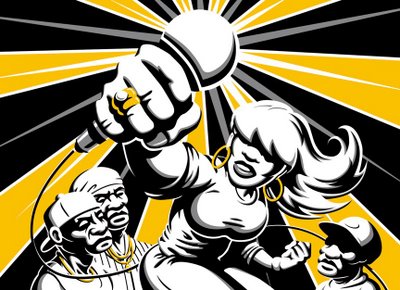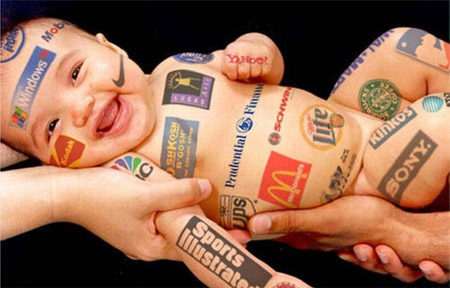The following post was originally published by fellow emcee, AtLas’, in the forum section of HipHopSisters.com…

The rare and deadly female emcee
“Why is there a perceived lack of female emcees in Hip-Hop? People are always asking where the ladies are in Hip Hop. I happen to know of a few places where you can find us. However, when the question is posed, I have to wonder, do they only mean the female emcees? There doesn’t seem to be a lack of female dj’s or b-girls, so why emcees? I have my own thoughts, but I’m interested to know yours.”
In response to AtLas’ questions, I wrote the following elaborate reply. However, I chose not to publish it at HipHopSisters.com because I determined it to be inappropriately lengthy…
In response to your first question, asking why there is a “perceived” lack of female emcees in the game right now, especially when compared with DJs and B-Girls, the answer is complex. We must start, first, by realizing (and admitting) that today’s Hip-Hop music has been completely compromised by the corrupted Corporate oligarchy known as the “Music Industry.” In essence, Hip-Hop is a vehicle, driven by struggle, towards empowerment, using the fuel of expression. And, though the genre began underground, it was not until it was picked up by the mainstream that it became a worldwide sensation. And, as the gatekeepers of all radio play, and the holders of all major record labels, for many years, the Music Industry has usurped authority over the entire Hip-Hop music scene. Record executives have worked hard to convert the emcee into a “product,” to be sold in a commercially-driven market. The Industry has, in effect, removed most of the heart and soul from Hip-Hop music, and replaced it with the sort of shallow, fickle, fad-based, formula-dependent “pop” culture that draws teenyboppers to the market en mass, eager to purchase the latest, most popular album available. Where Hip-Hop once had substance, it now has image. The content and message of lyrics have taken a backseat to swag, flow and “a good beat.” Most of today’s radio emcees no longer represent the streets, or the struggle. Instead, they simply represent the Corporate interests of their record label masters. These types of sellout emcees – motivated primarily by money – serve as “useful idiots” to the Industry, because they are ready, willing and able to completely, hypocritically “brand” themselves to fans in order to increase sales. From where I stand, today’s mainstream Hip-Hop music more resembles a high school popularity contest than an actual form of art.
(Click Here to Continue Reading This Post) →









